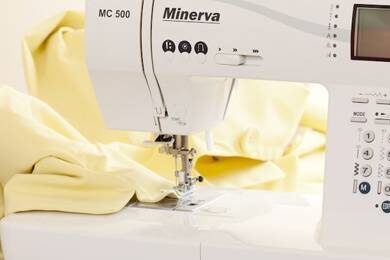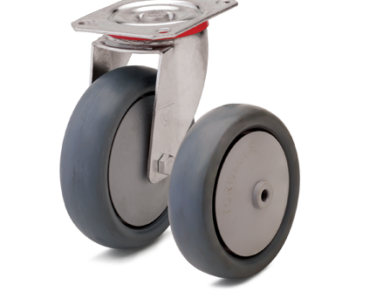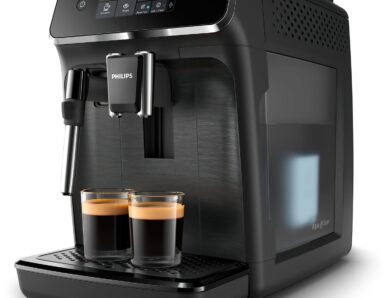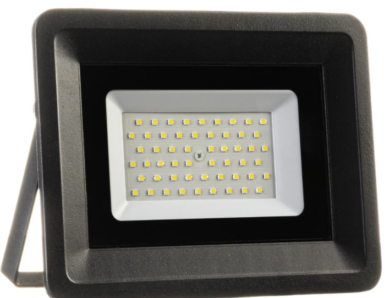Recirculation hood: principle of operation, Advantages and disadvantages
Speaking in technical language, then recirculating or circulating hoods for the kitchen are not them in essence, because they do not remove polluted air, and clean it with filters and return. This type of ventilation, from the point of view of experts, is considered the cheapest. For many kitchens, filter installations are the most acceptable option.
What is the difference
There are two main types of hoods. Evacuation (flowing) carry out the removal of polluted air outside the room through the ventilation shaft of the building. The recirculation system works on the principle of a closed cycle, it is not necessary to bring exhaust air ducts to stationary ventilation. When using the recirculation mode it is not required to carry out any serious work or rearrangement of furniture in kitchen for installation of an extract. Contaminated stream is pumped through filters, which remove small splashes of fat and odor, the purified air mass is returned back to the room.
flow system
Evacuation hoods (with ventilation) are more powerful, but they have many disadvantages:
- separate connection to the mine ventilation;
- mandatory installation of a non-return valve;
- requires a constant flow of fresh air from the open window;
- separate costs for the installation of the duct in the case of remote location of the standard entrance to the ventilation shaft;
- installed ??the system removes heated air in winter, instead, an influx of cold comes from the street, which adversely affects the heating, in summer everything is the opposite.
Therefore, hoods of this type are best used in specialized kitchens of food companies, where they fully justify the cost of connection. In the apartments, especially small, it is more convenient and rational to use recirculation systems.
The principle of operation of the recirculation hood
In multi-storey buildings, problems with the ventilation system often occur: there is insufficient draft or ventilation is not carried out at all due to clogging of the internal ducts. That's where the hood comes to the rescue, which works without connection to ventilation, or simply - the circulatory type.
The fan rotates in a horizontal plane above the hob, drawing in the bell of the system streams of contaminated air from cooking. On the way, this thread encounters special filters, which besiege on the reticular surface of the fat particles. Then there is a cleansing of odors, after that the air flow returns to the room. When you have finished cooking, turn off the system and open the window for ventilation, to restore a normal atmosphere.
Importantly! Humidity in the kitchen will not go anywhere without regular ventilation, and the influx of fresh oxygen will only refresh the whole room.
Hermetic double-glazed windows are installed in modern city apartments, which eliminate noise from the street, but the inflow of air into the room must be constant.
Recirculation hood operation
Advantages and disadvantages of the design
Installation of hoods of this type does not differ from the standard placement of similar appliances, but their autonomy is much higher. They are not connected to the ventilation system, therefore, designers have developed a number of compact pull-out hoods, where recirculation is used. They are called telescopic hoods. During operation, they filter by creating a strong lateral thrust, sucking up all the pollution along with the air flow. After disconnection, the system sinks into the table top, very convenient and original.
advantages
This type of device has slightly less performance and power, but it also allowed manufacturers to reduce their cost, which only pleases users. All components of the system experience less stress, therefore, they can work without accidents for much longer.
In the operation of such a system there is no place for reverse thrust. Autonomous location allows free installation of the plate - users put it there, where they are most comfortable, regardless of the location of the entrance to the ventilation shaft.
Recirculation hood in the kitchen interior
shortcomings
The biggest disadvantage of devices with recirculation can be called the frequent replacement of filters, which occurs in hoods of this type at least 1-2 once a year. Especially since a combination of fat and carbon filters is used for quality filtration. Grease filters can be easily washed, like greasy dishes, using special tools (read more, how to clean the hood from grease).
When buying, choose popular models with standard sizes - it will be easier for you to find replaceable cartridges.
The downside is that, that such systems cannot be installed above the gas hob - they do not cope with the decomposition products of gas during combustion, while oxygen is burned, recirculation becomes inefficient and pointless.
What filters are used
Conventional metal mesh at the bottom of the recirculation hood housing is a necessary minimum of filtration for any kitchen. They are designed to remove small particles of fat from the air. Their action is quite simple: passing through a frequent metal mesh, polluted air flow leaves small particles of fat on their surface. The more complex and smaller the grid pattern, the more fat remains on it. After some time, the mesh is removed and washed from the grease.
Usually, grids are made of stainless metal, in budget models - high-strength aluminum.
Additional filters are used to remove odors:
- Disposable paper inserts, synthetic or interlining. Replacement is carried out, when the picture on them becomes visible.
- Acrylic, are quite rare, but they are already reusable. When washing them, you must be very careful, never squeeze, so as not to disturb the location of the fibers.
- Carbon filters are denser, therefore detain unpleasant odors of burnt oil. They are able to effectively clean the air. Cartridges with used carbon filters are not reused, and replaced with new ones. The frequency of their replacement directly depends on the intensity of operation of household appliances.
carbon filters
Any manufacturer of hoods, as recirculation, and another sample, where the filters are, must indicate in the operating instructions the date of their replacement. Some set the frequency no more 3 months, and others after long-term operation for six months.
The most advanced models of cassette filters are provided with indicators, which report extreme clogging. This is quite convenient - you will immediately know the exact frequency of replacement. When selecting a cassette, pay attention to the absence of gaps, oversized filters you just can't install.
Myths about filters
There are opinions among users about the benefits of different models of hoods. The main debate is about the effectiveness of filters and the quality of removal of harmful impurities.
Low filtration efficiency
No exhaust system removes all odors from the kitchen area 100%. The exhaust system is not suitable for all city apartments due to clogging of ventilation ducts and mines in apartment buildings. It is necessary to draw separate conclusions from each apartment - a special permit is required. The main task of any hood is to remove combustion products, fat drops and soot, T. TO. Their deposits on the furniture and walls do not add entourage to the interior of the room, and harmful to health. Circulatory filters perfectly cope with this problem.
By the way, evacuation systems also have filters, protecting the engine and air ducts, they also need to be changed periodically.
We conclude: regardless of the hood model, complete removal of unpleasant odors is in principle impossible. Both systems adequately cope with the task of removing soot and fat droplets..
Recirculation systems are more expensive
Now a little arithmetic: the set for connection of flowing system to house ventilation will manage not cheaper 1 thousands of rubles, if you need to hide the ducts, then add to the PVC pipes again 500 p. Installation work plus permission - more 4 thousands of rubles, just a minimum 1000 + 500 + 4000 = 5,5 thousand. Rubles. The cost of additional ventilation will not be taken into account.
Carbon filters of recirculation hoods are no less 400 rubles, no more than a year 2-4 cassettes. We receive 800-1600 rub. for a year. As a result, we can use the recirculation system at least 3,5 year, and the maximum is close 7 years or will be spent 1 once on connection of an extract of evacuation type. We did not take into account the calculations, that filters are also available in direct current systems, which also need to be changed.
Conclusion: circulating hood is cost-effective, витрати по заміні фільтрів рівномірно розподіляються на роки експлуатації.
It is difficult to find filters
Fundamentally incorrect statement: supplies, which include carbon filters, do other manufacturers, sometimes they are even better quality, than come complete with hood. No markup on the brand, and to buy the necessary filters is not difficult.
Filters reduce productivity
Another mistake, not supported by numbers - no one has ever done research on this topic, especially some measurements or comparisons of characteristics. Modern carbon filters are very thin, they cannot affect the power or performance of the exhaust system.
Fat clogs metal nets, which are present in all types of hoods and periodically washed.
Losses are present during the installation of direct current systems: one turn reduces efficiency by 10%, and without them, a hidden diversion will not do - at least two bends will be required. We believe: was 265 m3 / h according to the instructions, made a diversion with two turns, minus 20% as a result received 265-53 = 212 cube. m. / year
Conclusion: one should not believe unverified information and false myths. Power and performance are specified taking into account the installed filters.
We make the right choice
Autonomous type extractor hoods have different sets of functions, which make them a little more expensive, but help to increase the convenience of working with them:
- panel with touch screen for control;
- timer, programmed to auto-on and off;
- automatic sensors, with built-in fan depending on temperature or humidity;
- separate remote control.
The main parameter when choosing a recirculation system - is its size.
It is important to remember! Buy only this model, which in its functionality and size is perfect for your handed plate.
The dimensions of the hood should be a few inches wider than your hob: only in this case the fence of polluted air will be the maximum, in accordance, the efficiency of air flow cleaning will be much higher.




